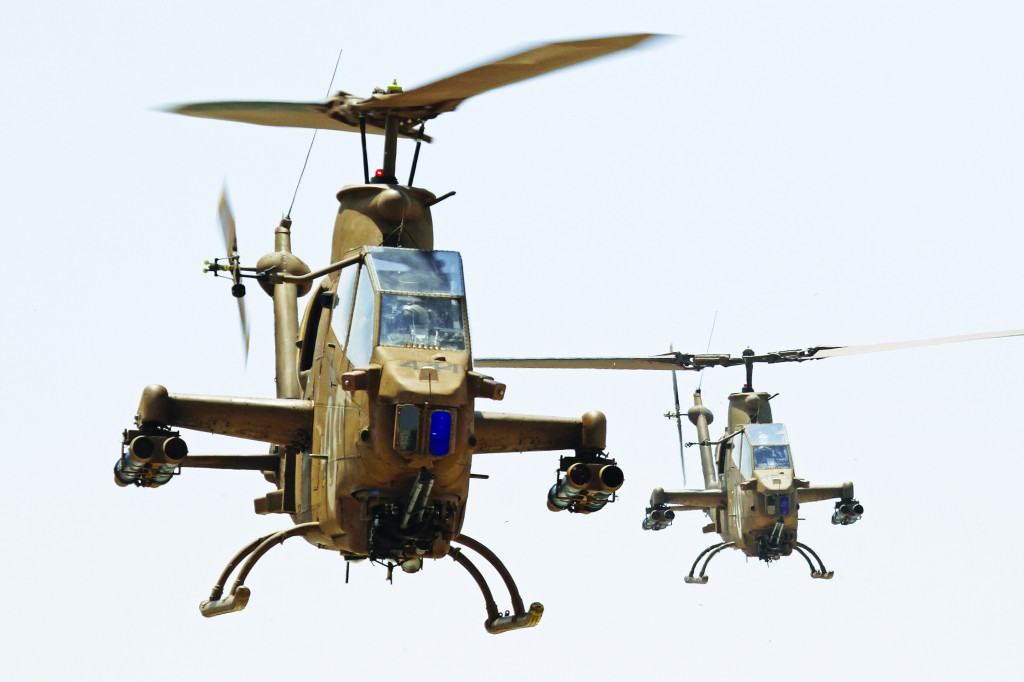Drones Gain Ground After Cobra Helicopters Cut

Israel has phased out one of its two types of U.S. attack helicopter in favor of using more drones, military officers have told Reuters, reflecting a need for lighter and cheaper air power to counter terrorist forces on its borders.
They said Israel’s last squadron of Cobras, built for tank-hunting and eluding surface-to-air missiles, was pulled from service late last year. The decision was previously kept under wraps but disclosed in an increasingly public feud between the Defense Ministry and Treasury over budget cuts.
Israel retains two squadrons of Apache helicopters which are bulkier than Cobras but equipped with a wide array of weaponry that lends versatility and range to counter-insurgent operations. It also flies an undisclosed number of pilotless drones.

The Cobras were axed as part of budget cuts, a senior military officer said. “They were sort of stuck in the middle in terms of the role they could fulfil, so we decided to do without them,” he told Reuters on condition of anonymity.
Israel had a fleet of approximately 33 AH-1 Cobra attack helicopters, according London-based International Institute for Strategic Studies (IISS).
Locally-made Israeli drones increasingly patrol combat zones such as the Gaza Strip. They can circle for long hours on propeller engines, beaming back video to mark ground targets or to guide troops.
The Israelis neither confirm nor deny the assessments of many independent experts who assert that some of Israel’s drones are also equipped to fire precision-guided missiles.
Ephraim Segoli, a retired Israeli air force brigadier-general with the Fisher Brothers Institute for Air and Space Strategic Studies near Tel Aviv, said the Cobras were more expensive to maintain than drones and older than the Apaches.
He said Israel also saw a shift to drones as a means of reducing the danger posed by terrorists armed with shoulder-launched heat-seeking missiles. These have been fired at Israeli helicopters — so far unsuccessfully — from Gaza and the Egyptian Sinai.
“The more the technologies of the drones has improved, the more they have been able to take over close air support roles,” Segoli said, envisaging a time when piloted helicopters would be “niche” assets in a mostly remote-controlled fleet.
The Cobra is manufactured by Bell Helicopter, a Textron company. The Apache, which Israel began receiving in 1990, is manufactured by Boeing Co.
An Israeli infantry officer said troops fighting Palestinian terrorists in Gaza now routinely call in drones, rather than helicopters, for support.
This article appeared in print on page 7 of edition of Hamodia.
To Read The Full Story
Are you already a subscriber?
Click "Sign In" to log in!

Become a Web Subscriber
Click “Subscribe” below to begin the process of becoming a new subscriber.

Become a Print + Web Subscriber
Click “Subscribe” below to begin the process of becoming a new subscriber.

Renew Print + Web Subscription
Click “Renew Subscription” below to begin the process of renewing your subscription.












